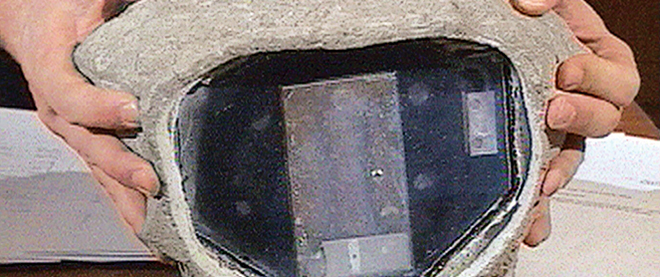How the British used a fake rock to spy on Russia
Former U.K. chief of staff admits what the Russians already knew
RTR/CP
Share

It sounds more like an episode of Inspector Gadget than one of international relations, but a former U.K. official has admitted that Britain used a fake rock to spy on Russia. Six years ago, Russia’s security service, the FSB, claimed British agents had been using handheld computers and a transmitter—concealed inside a plastic rock and planted in a Moscow park—to retrieve data planted by Russian double agents. At the time, then-prime minister Tony Blair downplayed the accusations. But Jonathan Powell, Blair’s former chief of staff, said in a BBC documentary that aired on Jan. 19 that Britain had indeed been caught red-handed.
“They had us bang to rights,” Powell confessed. “There’s not much you can say. The spy rock was embarrassing.” Russia was apparently tipped off to the rock’s significance after the device stopped working. Surveillance footage showed several men slowing as they walked by the rock; one stopped to give it a kick (using the favoured technique of DIYers everywhere), another carried it away.
And why has Powell chosen to break the first rule of spying now? It’s certainly a humbling revelation for Britain’s spy service. Not only was the espionage work so bumbling, but the U.K. was violating a post-Cold War agreement not to spy on Russia. (That said, the number of Russian spys in London “has not fallen since Soviet times,” according to MI5’s website.) Nikolai Kovalyov, a Russian politician and former FSB head, told a Russian news agency that Powell’s admission “is a serious signal from London that it is time to improve our relations.” Perhaps a step forward in an often rocky relationship?